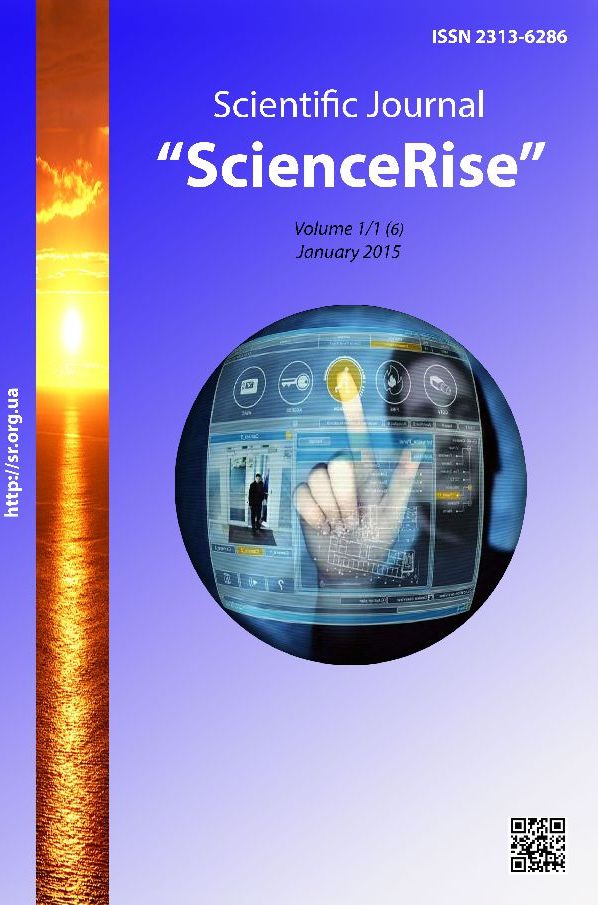Artificial intelligence tools in the branch of pedagogical diagnostics problematic
DOI:
https://doi.org/10.15587/2313-8416.2015.36409Keywords:
pedagogical diagnostics, students’ training, knowledge representation models, fuzzy logic, cluster analysisAbstract
The paper covers essence, functions and main problems of pedagogical diagnostics. Basing on their analysis there were distinguished branches of artificial intelligence which have certain potential as for solution of current tasks of pedagogical diagnostics. Necessary didactic facilities of professional training of students of pedagogical majors as for applying of AI tools to the problems of pedagogical diagnostics are characterized
References
Gavrilov, A. V. (2001). Systems of artificial intelligence. Novosibirsk: NGTU, 246.
Garbusev, V. (2007). Basics of Test Technologies. Informatics. Apr, 16 (400), 3–22.
Gryzun, L. E. (2009). Didactic bases of projecting of the subject modular structure on the basis of scientific knowledge integration. Kharkiv National Pedagogical University named after G.S. Scovoroda, 417.
Gryzun, L. (2014). Ways of fuzzy logic application to the solving problems of pedagogical diagnostics. Narodna Osvita, 1 (22). Available at: http://narodnaosvita.kiev.ua/?page_id=2165
Gryzun, L. E. (2014). Artificial Intelligence and its application to the systems of pedagogical diagnostics. Kharkiv : KhNPU named after G.S. Scovoroda, 151.
Kolgatin, O. G. (2007). Didactic requirements to the means of automatic pedagogical diagnostics. Means of teaching and scientific-research work. Kharkiv : KhNPU named after G.S. Scovoroda, 27, 65–74.
Maksimov, V. G. (2002). Pedagogical diagnostics at school. Moscow:Akademiya, 270.
Podlasyy, I. P. (2002). Pedagogy. New Course. Moscow : VLADOS, 576.
Pospelov, G. S. (1989). Artificial Intelligence is a base for new information technology. Moscow : Nauka, 280.
Knowledge representation and application. (1989). Transled from Japanese by H. Ueno, M. Isidzuka. Moscow : Mir, 220.
Subbotin, S. O. (2008). Knowledge representation and processing in the systems of artificial intelligence and decision-making systems: Textbook. Zaporizhia: ZNTU, 341.
Downloads
Published
Issue
Section
License
Copyright (c) 2015 Людмила Едуардівна Гризун

This work is licensed under a Creative Commons Attribution 4.0 International License.
Our journal abides by the Creative Commons CC BY copyright rights and permissions for open access journals.
Authors, who are published in this journal, agree to the following conditions:
1. The authors reserve the right to authorship of the work and pass the first publication right of this work to the journal under the terms of a Creative Commons CC BY, which allows others to freely distribute the published research with the obligatory reference to the authors of the original work and the first publication of the work in this journal.
2. The authors have the right to conclude separate supplement agreements that relate to non-exclusive work distribution in the form in which it has been published by the journal (for example, to upload the work to the online storage of the journal or publish it as part of a monograph), provided that the reference to the first publication of the work in this journal is included.

